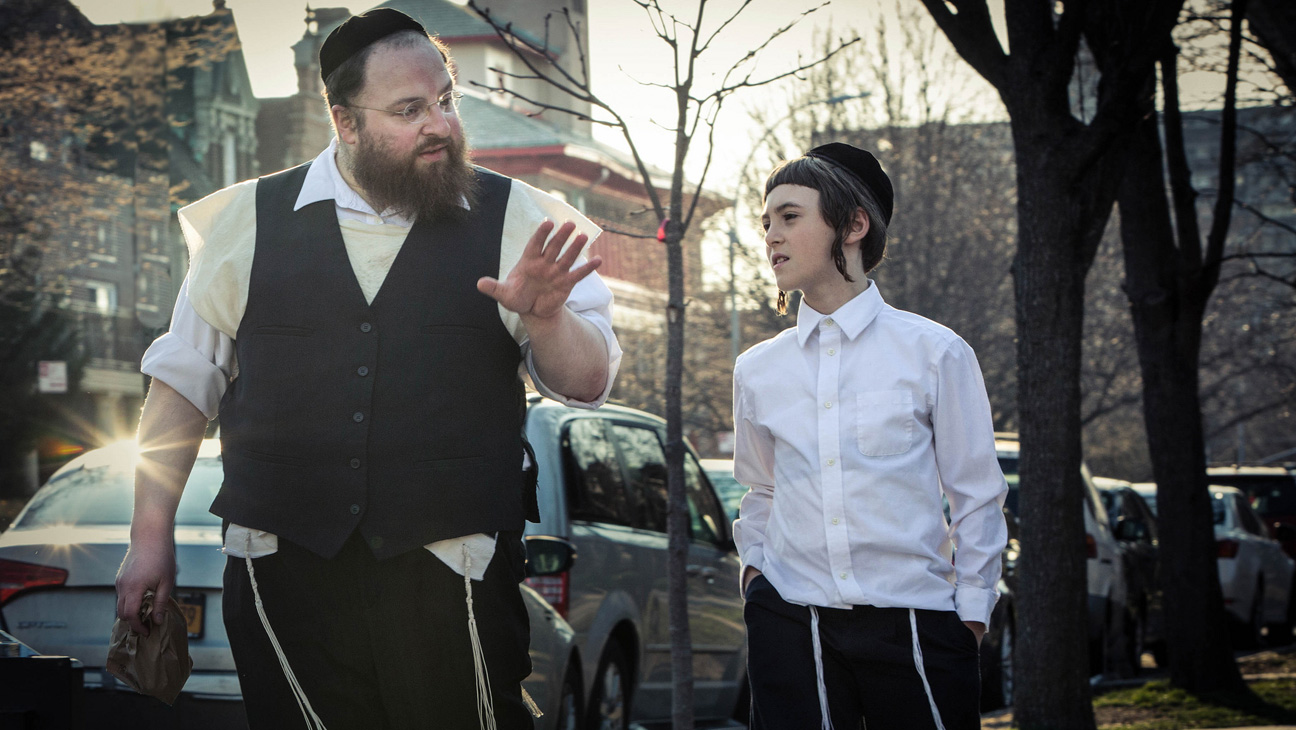There are stories that we see pop up again and again in popular cinema, often because they are either immediately relatable to a constant part of the human psyche, or because we have become so familiar with the archetypes at play that we empathize with perspectives that aren’t directly comparable to our own. This is why the success or failure of retelling that sort of story depends entirely on the incidental details beyond the central narrative: setting, secondary characters, and subplots to name a few. This is how Menashe sets itself apart as a story of a widower attempting to raise his son; the emotional resonance is nothing you haven’t seen before, but the cultural packaging is not something normally seen in mainstream cinema.
Menashe, though set in present-day New York, is spoken almost entirely in Yiddish as we catch a glimpse at the cloistered society of Hasidic Jews. Menashe (Menashe Lustig) is a recent widower who is struggling to get his life back together; he works for a terrible boss as a grocery store clerk, he’s constantly making careless and irresponsible mistakes, and, worst of all, his ten-year-old son Rieven (Ruben Niborski) lives with his dead wife’s brother instead of with him. See, in Hasidic tradition, a man cannot raise a child on his own, so until Menashe remarries, he must allow Rieven’s uncle (Yoel Weisshaus) and his family to see to the boy’s upbringing. In light of his wife’s upcoming memorial, Menashe asks the rabbi (Meyer Schwartz) to allow Rieven to stay with Menashe for a week, to which the Rabbi reluctantly agrees.
So what we have here is the set-up for a relatively conventional tale of a masculine struggle to relate to his motherless child, only now the issue is exacerbated by the cultural necessities of Hasidic culture. Women are strictly considered homemakers while men are expected to focus on work outside the home, so Menashe’s love for his son is complicated by the fact that he has never been directly responsible for raising the boy. Menashe drinks and is constantly irresponsible, putting himself and Rieven in danger of physical or economic harm more than once. Much of this may in fact be attributable to his widower’s depression, but the way director Joshua Z. Weinstein chooses to portray Menashe through purely observational and inferential cinematography leaves the complexities of the character open to interpretation, which Menashe Lustig conveys with a remarkable range for someone who has no other film credits to his name.
There isn’t that much more to say about Menashe—at least in the context of a spoiler-free review—except that it’s a very effective representation of the story it wants to depict. To those of us unfamiliar with Hasidic culture and its norms, the novelty of seeing this cultural experience demonstrated in a narrative form is likely worth the price of admission alone, and the emotional stakes wrapped up in that tale are familiar even as they are articulated through an unfamiliar lens. Single fatherhood is something we have seen visited time and again in popular culture; seeing that same issue examined in the context of another culture that exists alongside other more commonly conveyed American cultures is a unique experience film-goers are not often afforded. Embrace it.













